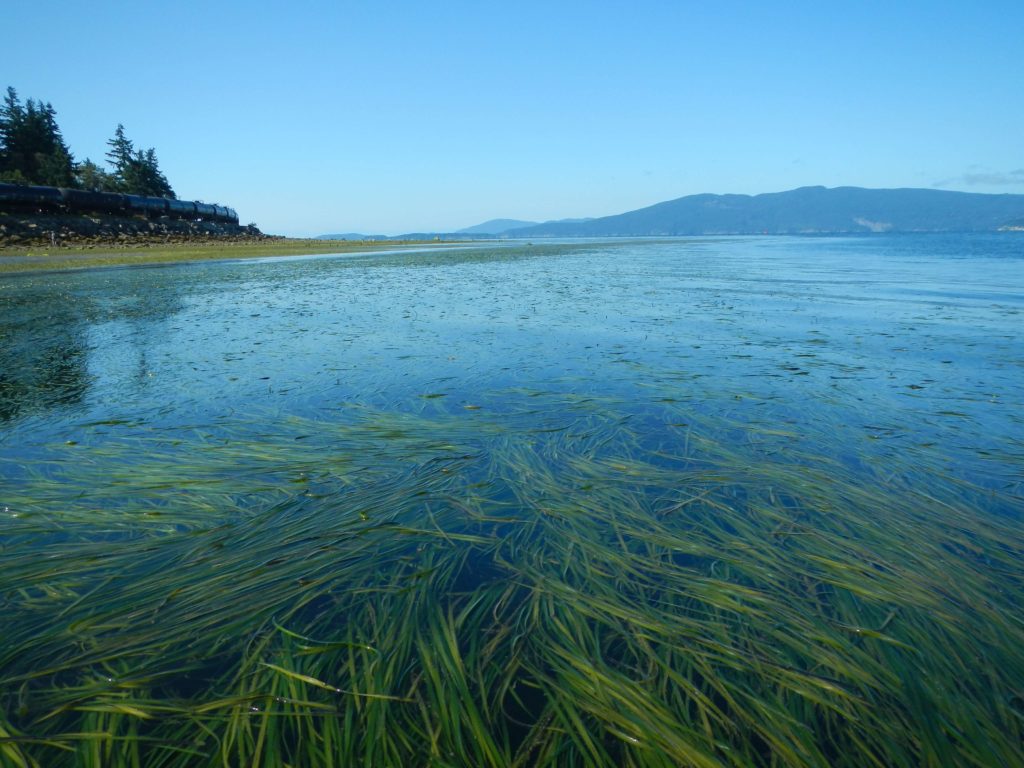The word “lobbying” carries a lot of baggage. Polluting industries and special interests have bred a lot of cynicism around what it means to lobby lawmakers, and worked to weaken laws protecting our most valuable shared resource: Water.
But really, lobbying is simply meeting with elected officials to have your voice heard. That’s why we think it’s time lobbying is put back into the hands of the people. We’re calling on our community to join us for Clean & Abundant Water Lobby Week from January 31st to February 4th, where we’ll help make it easier to talk to your elected officials about four key bills that could become law this year. More about those bills below.
We’ll hold a training session the week before so you have the tools and confidence to lobby, details sent when you sign up. We encourage anyone to join, whether it’s your first time talking to lawmakers or not! We’ll be right alongside you at every step of the way.
This week is organized by RE Sources and North Sound Baykeeper, Center for Environmental Law & Policy (CELP), Deschutes Estuary Restoration Team (DERT), Spokane Riverkeeper, Twin Harbors Waterkeeper, and Puget Soundkeeper.
What to expect: Brief training and short online meetings
We’ll hold one training shortly before Lobby Week begins at 10am on January 31st to go over:
- The do’s and don’ts of lobbying
- An overview of each of the bills, and talking points to help you support them.
Sign up for a short Lobby Week training
What bills are we advocating for?
The Lorraine Loomis Act for Salmon Recovery (HB 1838/ SB 5727): Some Puget Sound salmon species have declined by 90% compared to historical populations. The Act requires properly functioning riparian management zones around rivers and streams, including healthy vegetation to maintain cool waters. It also increases the focus on salmon recovery in land use planning for the future, with important financial assistance, monitoring, and accountability to address the urgency of the salmon crisis. Learn more about the bill.Unfortunately, this bill has been pulled and is no longer being considered.- The RENEW Act (SB 5697): Globally, 33 billion pounds of plastic enter the marine environment every year, devastating the world’s oceans, ecosystems, and communities. The Act will (among other provisions) 1) Establish an extended producer responsibility system that make producers of packaging and paper products responsible for the full lifecycle of their products; 2) Require that by 2031, 100% of the packaging and paper products made or sold into Washington is reusable, recyclable, or compostable. Learn more about the bill.
- Conserving and restoring kelp forests and eelgrass meadows (SB 5619): Kelp and eelgrass are critical to iconic species like salmon and orcas, and hold irreplaceable cultural value for many Tribal Nations. This bill generates funding to allow the Department of Natural Resources to complete the analysis needed to develop success measures and coordinate actions to conserve critical marine forests and meadows to achieve a goal of 10,000 acres of kelp forest and eelgrass meadows conserved and restored by 2040. Learn more about the bill.
- Updating Outdated Sewage Treatment Plant Permit Fees (SB 5585): The Department of Ecology develops wastewater discharge permits to control pollution pursuant to the Clean Water Act and state law. WA RCW § 90.48.465 includes a fee cap for municipal sewage treatment plant permits. Fees fund the administration of the permits. Over 200 municipal wastewater permits in the state have expired and their review is backlogged. Due to population growth, wastewater treatment facilities in the Puget Sound are exceeding their permit limits and polluting. The Department is currently experiencing a $2 million gap each year: lifting the current statutory fee cap will allow Ecology to increase fees to cover the cost of the program, address the backlog of permits, and help better control pollution coming from sewage treatment plants state-wide. Learn more about the bill.
Participants will attend at least one (or more depending on your legislative district) 15-minute lobbying meeting with a representative via Zoom. Each meeting will be staffed with at least one member from a host organization to help guide and facilitate while we advocate for these priority bills. More info on training and meetings will be sent when you sign up!
Click the tabs above for more information on each bill.
Other resources to participate during the legislative session
Find your legislative district



